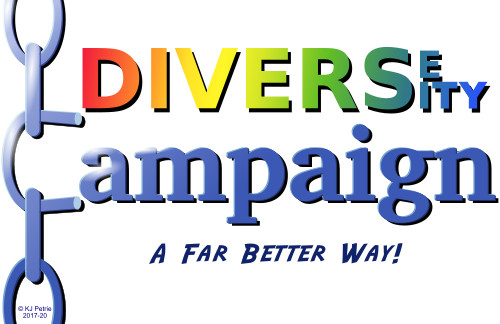Opinion
6th January 2023
A better way?
Joanna Williams has just published an article on CEIO, and more fully in The Times, entitled There’s a better way than diversity training in which she argues against the Diversity industry and the tokenism it promotes. One point is that some candidates might actually resent being offered appointments on the basis of membership of an identity group rather than their own merit, but the main argument is the cost which is thereby diverted from funding the poorly paid staff who actually deliver services, many of whom are from minority groups themselves.
Her article appears to make numerous valid points. I cannot help sympathising with the irony of someone being paid £40,000 pa to ensure staff recruited to £15,000 pa positions are both treated and required to treat others according to the apartheid by which the higher-paid person categorises them. Of course, the £40m cost added to the wages of those staff would only amount to say, £400 each if there are 100,000 of them, but that would still be a 2.7% pay rise.
What might be taken to justify the need for Diversity training could be, as I heard reported the other day, that minority ethnic women are four times as likely to die in childbirth as the majority. That statistic was used to prove the existence in the NHS of institutional racism, even though many of the nursing and midwifery staff are themselves from ethnic minorities. This logic seems to imply ethnic minorities are institutionally racist, even against their own minorities. Really?
One would expect the NHS, more than any other institution, to understand the necessity for accurate diagnosis before prescribing treatment, but apparently that does not apply to analysis of ethnic statistics. Instead of investigating the specific reasons for deaths and for the reason why death might be more prevalent in one social group than others, the service is just blamed for unfair discrimination. It’s easier that way, and it justifies highly paid non-clinical jobs.
One suggestion was that some Asian women, for example, might be less inclined to speak up and raise queries about their treatment if concerned because they do not feel empowered to do so. If that is true, it certainly is a problem, but where does that problem arise and what is to be done about it? Is it a cultural matter to do with subservience? Does that mean Asian women from certain cultural backgrounds need extra attention to ensure they are comfortable with what is done to them and more able to mention signs of distress? Possibly, but isn’t every patient entitled to that attention? If they don’t get it, is that racism or is it just an indication of an overworked service stretched too thin to provide proper care and that the more vulnerable, less complaining patients come off worse in such a situation? Is the remedy really about race, or could it be what’s really needed is a better-functioning NHS where everyone gets the care they need?
I cannot answer these questions because I lack sufficient information, but they do need answering before we can understand what needs to be done to improve the situation. Jumping to unproven conclusions and prescribing remedies based on presumption is no way to treat anyone in a service devoted to personal care.

